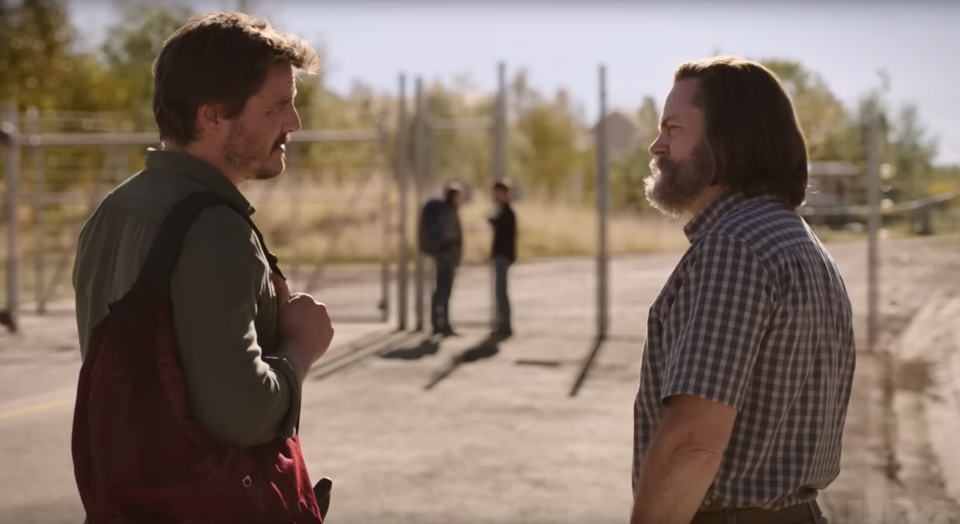What’s been a commercial success has followed suit critically.
The Last of Us — HBO’s post-apocalyptic series which saw its first season filmed across Alberta, including Okotoks, High River and Foothills County — took home eight Primetime Creative Arts Emmys on Jan. 15 amid a plethora of nominations at three recent award shows.
The first live-action video game adaptation to earn nominations in major categories at the Emmys, The Last of Us had the second most nominees at the 75th annual Emmy Awards with 24, behind fellow HBO series Succession.
Nick Offerman, who portrayed survivalist Bill in the episode ‘Long, Long, Time’, won for Best Guest Actor in A Drama Series. Storm Reid, who played Riley Abel in the episode ‘Left Behind’, took home the Best Guest Actress in a Drama Series.
The Last of Us also won for Outstanding Prosthetic Makeup, Outstanding Special Visual Effects in a Season or a Movie, Outstanding Main Title Design, Outstanding Sound Mixing for a Comedy or Drama Series, Outstanding Sound Editing for a Comedy or Drama Series and Outstanding Picture Editing for a Drama Series.
Earlier in the month, the series was nominated for three Golden Globe Awards and three Critics’ Choice Television Show Awards.
The first season of the series aired from January to March, 2023.
The show was shot on location in Okotoks’ Suntree neighbourhood in January and February, 2022. Other shooting locations in the area included the former community of Beachwood and Evelyn’s Memory Lane Diner in High River, the Mazeppa Gas Plant, the Ann & Sandy Cross Conservation area, Sheep River Falls, Priddis, Bragg Creek, Nanton, Claresholm, Canmore, Calgary and Olds.
Travel Alberta has created a map of filming locations in the province.
The second season of the series is set to be filmed in B.C. in 2024.
In November, the Motion Picture Association-Canada released the findings of the economic impact from season one with over $141 million spent across the province; $71 million was spent on production costs, wages and salaries for crew along with an additional $70 million sent on local business in Alberta.
The production generated 1,490 jobs in the province in 2021-22 and generated more than $182 million to Alberta’s GDP.
“The Last of Us, the largest series ever filmed in Canada, has left an indelible mark on Alberta’s economic landscape,” said Alberta Minister of Jobs, Economy, and Trade Matt Jones, in a release. “Supported by Alberta’s Film and Television Tax Credit, this monumental production not only showcased the breathtaking facets of our province but also emphasized why Alberta, with over 180 diverse filming locations, is a world-class destination for large-scale film and television productions.”




